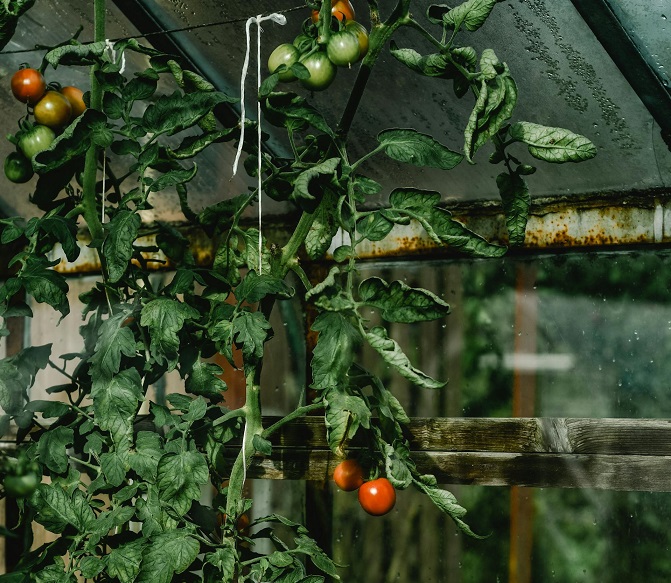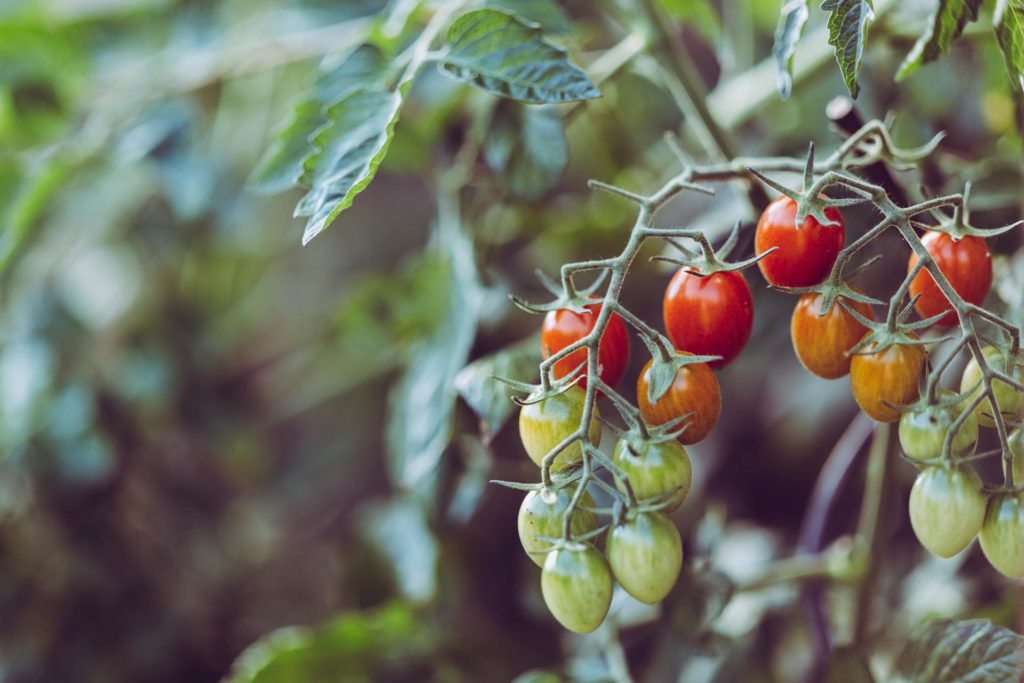From Soil to Table: Which Tomatoes Are Tops?
Welcome to the ultimate guide on tomato nutrition! As you embark on this journey, you’ll discover the intricate world of tomatoes, from soil to table. Understanding the importance of choosing between organic and conventional tomatoes is not just about taste; it’s about nourishing your body with the best nature has to offer.
The Basics of Tomato Nutrition
Tomatoes are more than just a colorful addition to your plate; they’re packed with essential nutrients that promote overall health and well-being. From vitamin C to potassium, tomatoes boast an impressive nutritional profile that supports various bodily functions. By incorporating tomatoes into your diet, you’re giving your body a nutrient-rich boost that can’t be beaten.
Organic vs. Conventional: What’s the Difference?
When it comes to growing tomatoes, not all methods are created equal. Organic farming practices prioritize sustainability and environmental stewardship, eschewing synthetic pesticides and fertilizers in favor of natural alternatives. On the other hand, conventional farming relies heavily on chemical inputs to maximize yields, raising concerns about pesticide residues and environmental impact.
Soil Health and Tomato Nutrition
The health of the soil plays a crucial role in determining the nutritional quality of tomatoes. Organic farming practices focus on building and maintaining healthy soil through techniques like composting and crop rotation, which enrich the soil with essential nutrients. In contrast, conventional farming methods may deplete the soil of vital nutrients over time, impacting the nutritional content of the tomatoes grown in it.
Pesticides and Chemicals: Potential Risks in Conventional Tomatoes
One of the primary concerns associated with conventional tomatoes is the use of synthetic pesticides and chemicals. While these substances help control pests and maximize yields, they may also leave behind residues that can pose potential health risks to consumers. Choosing organic tomatoes can reduce exposure to these harmful chemicals, ensuring a safer and more wholesome eating experience.
Nutritional Benefits of Organic Tomatoes
Organic tomatoes offer more than just peace of mind; they’re also packed with nutritional benefits that can enhance your overall well-being. Studies have shown that organic tomatoes may contain higher levels of antioxidants and phytonutrients compared to their conventional counterparts. By opting for organic tomatoes, you’re not just making a healthier choice for yourself; you’re also supporting sustainable farming practices that benefit the planet.

Taste and Texture: Organic vs. Conventional Tomatoes
Beyond nutritional considerations, many consumers are drawn to organic tomatoes for their superior taste and texture. Organic tomatoes are often praised for their rich, robust flavor and firm, juicy texture, which can elevate any dish they’re added to. While taste preferences may vary, there’s no denying the irresistible appeal of a perfectly ripe organic tomato.
Environmental Impact: The Sustainability Factor
In an era of increasing environmental awareness, the sustainability of food production methods has become a pressing concern for many consumers. Organic farming practices prioritize sustainability by minimizing the use of synthetic inputs and promoting soil health and biodiversity. By choosing organic tomatoes, you’re not just nourishing your body; you’re also supporting farming practices that protect the planet for future generations.
Pricing and Accessibility: Are Organic Tomatoes Worth It?
One common misconception about organic produce is that it’s prohibitively expensive and inaccessible to the average consumer. While organic tomatoes may indeed command a slightly higher price tag than their conventional counterparts, the long-term benefits far outweigh the short-term costs. Additionally, the growing demand for organic produce has led to increased availability in grocery stores and farmers’ markets, making it easier than ever to incorporate organic tomatoes into your diet.
Understanding Labels: Navigating the Grocery Aisle
Navigating the grocery aisle can be a daunting task, especially when faced with a dizzying array of labels and certifications. Understanding what these labels mean can help you make more informed choices when selecting tomatoes for your table. Look for certifications like “USDA Organic” and “Non-GMO Project Verified” to ensure that the tomatoes you’re purchasing meet rigorous standards for quality and sustainability.
Health Considerations: Making the Best Choice for You
When it comes to your health, there’s no one-size-fits-all solution. Factors like individual health concerns, dietary preferences, and budget constraints can all influence your decision to choose organic or conventional tomatoes. Consulting with healthcare professionals and nutritionists can provide valuable insights tailored to your specific needs, helping you make the best choice for your overall well-being.
Cooking and Recipes: Making the Most of Your Tomatoes
Whether you prefer to enjoy them raw in salads or cooked in sauces and soups, tomatoes are a versatile ingredient that can enhance a wide range of dishes. From classic Caprese salads to hearty marinara sauces, there’s no shortage of delicious recipes featuring both organic and conventional tomatoes. Experimenting with different cooking methods and flavor combinations can help you unlock the full potential of these vibrant fruits.
Consumer Trends: The Rise of Organic Produce
In recent years, there has been a noticeable shift in consumer preferences towards organic produce, including tomatoes. As more people become aware of the potential health and environmental benefits of organic farming, demand for organic tomatoes continues to rise. This trend is reflected in the increasing availability of organic tomatoes in grocery stores and the growing number of farmers’ markets offering organic produce.
Case Studies: Success Stories in Organic Farming
Behind every organic tomato is a story of dedication, innovation, and sustainable farming practices. From small-scale family farms to large-scale operations, organic farmers across the globe are leading the way in producing nutritious, flavorful tomatoes without compromising the health of the planet. By highlighting these success stories, we can inspire others to support organic farming and make more conscious food choices.
Community Impact: Supporting Local Farmers
Supporting local farmers isn’t just about buying fresh, locally grown produce; it’s about investing in the future of our communities. Community-supported agriculture (CSA) programs offer a direct connection between consumers and farmers, allowing individuals to purchase seasonal produce directly from the source. By participating in CSA programs and shopping at farmers’ markets, you’re not just supporting local economies; you’re also fostering a sense of community and connection with the food you eat.
Future Outlook: Innovations in Tomato Farming
As technology continues to evolve, so too does the field of tomato farming. From advancements in organic pest control methods to innovative soil management techniques, the future of tomato farming is brimming with potential. By embracing these innovations, farmers can improve crop yields, enhance soil health, and reduce environmental impact, paving the way for a more sustainable and resilient food system.
Myth busting: Common Misconceptions About Tomato Nutrition
In the realm of nutrition, myths and misconceptions abound, and tomatoes are no exception. From claims that organic tomatoes are no more nutritious than conventional ones to concerns about pesticide residues, separating fact from fiction can be a challenge. By addressing common misconceptions and providing evidence-based insights, we can empower consumers to make more informed choices about the food they eat.
Health Studies: Research on Tomato Nutrition
The scientific community has conducted extensive research on the health benefits of tomatoes, shedding light on their potential role in preventing chronic diseases such as heart disease, cancer, and diabetes. Studies comparing the nutritional profiles of organic and conventional tomatoes have yielded valuable insights into the potential differences between the two. By staying informed about the latest research findings, consumers can make educated decisions about which type of tomatoes to include in their diet.
Certification and Regulation: Ensuring Quality and Safety
When it comes to food safety and quality assurance, certifications and regulations play a crucial role in
ensuring that consumers can trust the products they purchase. Organic certification standards, such as those set forth by the USDA (United States Department of Agriculture), require organic farmers to adhere to strict guidelines regarding soil management, pest control, and use of synthetic inputs. Similarly, government regulations on pesticide use in conventional farming aim to minimize risks to human health and the environment. By adhering to these standards and regulations, farmers can provide consumers with assurance that the tomatoes they produce meet rigorous quality and safety criteria.
Personal Stories: Experiences with Organic vs. Conventional Tomatoes
Behind every tomato on your plate lies a story, and for many individuals, that story begins with a conscious choice to embrace organic produce. Personal anecdotes from consumers who have made the switch to organic tomatoes offer valuable insights into the real-world impact of this decision. Whether motivated by health concerns, environmental considerations, or simply a desire for tastier tomatoes, these stories serve as a reminder that every purchase has the power to shape our health and the health of the planet.
Things to consider when choosing tomatoes for your meals.
In the grand tapestry of agriculture, tomatoes hold a special place as both a culinary delight and a nutritional powerhouse. From their humble beginnings in the soil to their journey to your table, the story of tomatoes is one of resilience, innovation, and sustainability. As you ponder the great tomato debate between organic and conventional, remember that the choice ultimately rests in your hands. By considering factors such as nutrition, taste, environmental impact, and personal values, you can make an informed decision that aligns with your preferences and priorities. Whether you opt for the pristine purity of organic tomatoes or the practicality of conventional ones, one thing is certain: the tomato will continue to reign supreme as a beloved staple of the human diet for generations to come. So, the next time you bite into a juicy, ripe tomato, take a moment to savor not just the flavor, but the journey that brought it to your plate.

